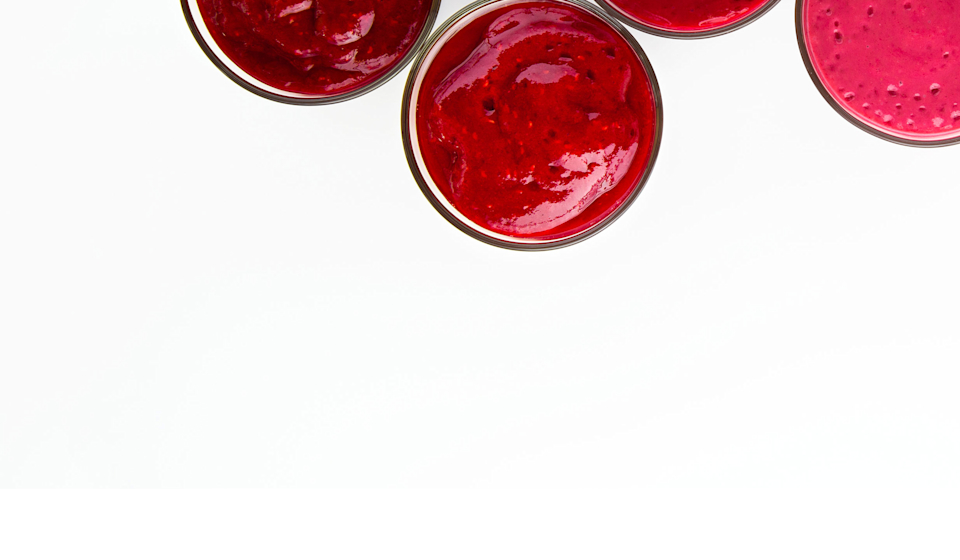Where do prenatals and postnatals fit in?
Let’s start with a quick crash course on the difference between the two: Prenatal multivitamins are a great way to support nutrient needs, before and during pregnancy. (In general, we recommend taking a prenatal multivitamin when thinking, trying, and when it’s time.)
Postnatal multivitamins, on the other hand, are ideal for helping to support the nutritional needs of new parents, especially those who are breastfeeding. As such, women should consider switching from a prenatal multi supplement to a postnatal multi supplement once they give birth, and continue taking one for at least six months postpartum—or potentially longer, if they’re continuing to breastfeed. (Note that regardless of whether breastfeeding or not, lactation naturally increases the demand for more than half of the essential micronutrients compared to pregnancy—which means that incorporating a postnatal multi is probably a good idea, no matter what route.)*
The takeaway?
The most reliable way to support nutrient needs is to eat a well-balanced, nutritionally-dense diet and supplement with key nutrients specifically tailored to support the nutritional needs of the postpartum period. And if you have any questions regarding lactation supplements, reaching out to a healthcare provider and/or lactation consultant is never a bad idea.
References:
- Office of Dietary Supplements. Vitamin A: Fact sheet for Health Professionals. National Institutes of Health, Department of Health & Human Services, 2020.
- USDA, Agricultural Research Service. Usual Nutrient Intake from Food and Beverages, by Pregnancy/Lactation Status, What We Eat in America, NHANES 2013-2016. 2020.
- Kaiser L, Allen LH; American Dietetic Association. Position of the American Dietetic Association: nutrition and lifestyle for pregnancy. J Am Diet Assoc. 2008 Mar;108(3):553-61.
- Kaiser LL, Campbell CG; Academy Positions Committee Workgroup. Practice paper of the Academy of Nutrition and Dietetics abstract: nutrition and lifestyle... J Acad Nutr Diet. 2014 Sep;114(9):1447.
- Office of Dietary Supplements. Choline: Fact sheet for Health Professionals. National Institutes of Health, Department of Health & Human Services, 2020.
- EFSA. Scientific opinion on dietary reference values for fats, including saturated fatty acids, polyunsaturated fatty acids, monounsaturated fatty acids, trans fatty acids, and cholesterol. EFSA J. 2010, 8, 1461–1566.
- Koletzko B, Lien E, Agostoni C, et al. The roles of long-chain polyunsaturated fatty acids in pregnancy, lactation and infancy: review of current knowledge and consensus recommendations. J Perinat Med. 2008;36(1):5‐14. doi:10.1515/JPM.2008.001
- World Health Organization. Interim Summary of Conclusions and Dietary Recommendations on Total Fat & Fatty Acids From the Joint FAO/WHO Expert Consultation on Fats and Fatty Acids in Human Nutrition. 2008.
- Zhang Z, Fulgoni VL, Kris-Etherton PM, Mitmesser SH. Dietary intakes of EPA and DHA omega-3 fatty acids among US childbearing-age and pregnant women: an analysis of NHANES 2001-2014. Nutrients. 2018;10:416.
- Abalovich M, Amino N, Barbour LA, Cobin RH, De Groot LJ, Glinoer D, Mandel SJ, Stagnaro-Green A. Management of...during pregnancy and postpartum: an Endocrine Society Clinical Practice Guideline. J Clin Endocrinol Metab. 2007 Aug;92(8 Suppl):S1-47.
- American Academy of Pediatrics. Iodine...New Information.... Pediatrics 2014, 133, 1163–1166.
- Public Health Committee of the American Thyroid Association, Becker DV, Braverman LE, Delange F, Dunn JT, Franklyn JA, Hollowell JG, Lamm SH, Mitchell ML, Pearce E, Robbins J, Rovet JF. Iodine supplementation for pregnancy and lactation-United States and Canada: recommendations of the American Thyroid Association. Thyroid. 2006 Oct;16(10):949-51.
- Prinz-Langenohl, R., Brämswig, S., Tobolski, O., Smulders, Y. M., Smith, D. E., Finglas, P. M., & Pietrzik, K. (2009). [6S]-5-methyltetrahydrofolate increases plasma folate more effectively than folic acid in women with the homozygous or wild-type 677C-->T polymorphism of methylenetetrahydrofolate reductase. British journal of pharmacology, 158(8), 2014–2021.
†This content was created for informational use only, to share stories and provide education around this life stage. This information should not be read to recommend, endorse, or associate any specific products. Dietary supplements are not intended to diagnose, treat, cure, or prevent any disease or condition.
††As a health company that adheres to standardized nutrition research—which is often reliant on assigned sex at birth—we face some unique challenges regarding our gender-specific messaging. Our decision to use gendered terms is, unfortunately, a result of these limitations in nutrition research. In cases where complying with the binary distinction is necessary for scientific accuracy purposes, we want to make it very clear that we recognize a person’s gender identity might differ from their assigned sex.












